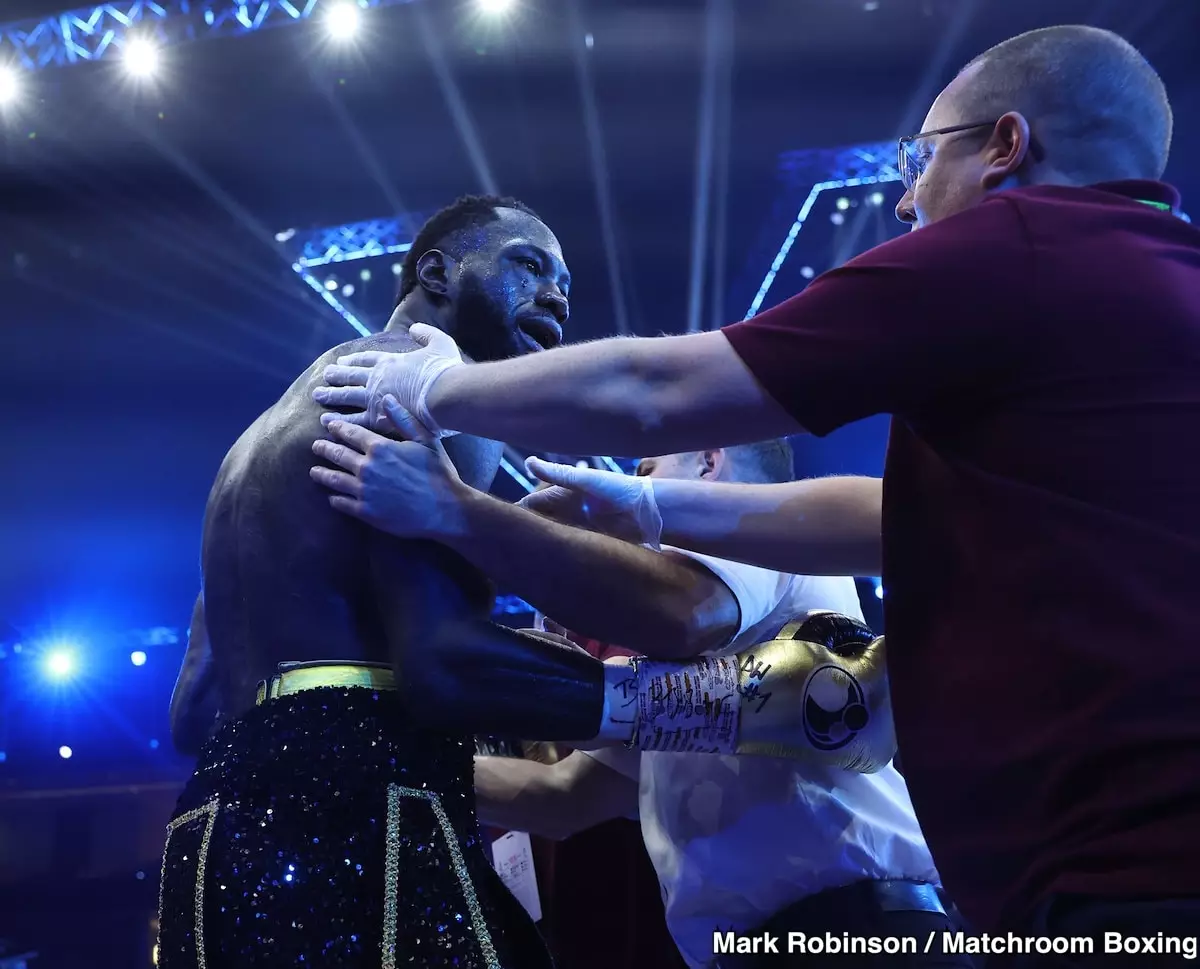In the realm of heavyweight boxing, few names resonate as powerfully as Deontay Wilder. Once crowned as a dominant titleholder, Wilder’s illustrious career has encountered a tumultuous downturn, leading him to step back into the ring on June 27 against Tyrrell Herndon in an unexpected setting: Wichita, Kansas. This decision raises eyebrows, particularly for a fighter whose last showcase of triumph was over a year ago and who has endured consecutive defeats that have invoked questions about his future.
Wilder’s recent performance has been troubling, to say the least. With a record of 43-4-1 and a staggering 42 knockouts to his name, his reputation as one of the hardest-hitting punchers in history now seems shadowed by recent disappointments. Notably, his last two outings against Joseph Parker and Zhilei Zhang did not just signal capitulation; they resembled outright obliterations. The drama of these matches felt less like the art of boxing and more like a gradual disassembly, showcasing Wilder’s vulnerabilities.
Wilder’s impending clash with Herndon, whose career has mostly cycled through mediocrity, poses the question: is this truly a step toward reclaiming his former glory, or merely an exercise in self-preservation?
Promoters’ Optimism or Delusion?
Promoters Nelson Lopez and Joshua Chasse have framed this bout as “Wilder’s legacy reloaded,” suggesting that this contest is a launching pad for the American heavyweight’s return to championship caliber. Chasse’s assertion that Wilder is on the path to reclaiming the heavyweight crown transfixed many, as they ponder the absurdity of fighting a 37-year-old journeyman with a questionable track record.
Herndon’s resume includes five losses, with three defeats coming against unfamiliar fighters whose names would elicit blank stares among even the most avid boxing fans. The keen observer might find it intriguing—or disheartening—that Wilder’s team would opt for such an opponent. From a promotional standpoint, the fight seems more like a tactical move to regain confidence rather than a serious step towards redemption.
In what boxing culture designates as “tune-up” bouts, fighters often seek the comfort of familiar faces before jumping back into the fray against more formidable opponents. In Wilder’s case, this match seems less about reclaiming dominance and more about preserving a semblance of relevance in a sport that has seen him at both his pinnacle and a painful descent.
Power Versus Perception
While Wilder’s veteran power remains intact, with the potential for a quick knockout against Herndon, the lingering questions about his overall effectiveness persist. Has Wilder become a mere shell of his former self? The knockout power that once sent opponents crashing to the canvas now stands juxtaposed against the backdrop of gradual decline and diminished fear factor.
The fear once associated with Wilder’s fists has diminished; the once intimidating aura that enveloped him has waned in the wake of recent defeats. With heavyweights like Tyson Fury and Anthony Joshua advancing, the boxing world has shifted, and Wilder finds himself grappling for relevance amid the evolution of the division.
Yet one must be cautious in drawing conclusions. A swift victory in Kansas may momentarily restore some sense of confidence and could create a marketing narrative—“the monster is back!”—but the reality remains unescapable. One successful night in a less glamorous setting is unlikely to rewrite the narrative of a career marked by decline.
Glimmers of Hope or Shadows of Doubt?
What does this return truly signify? Some may argue it showcases Wilder’s resolve, perhaps illustrating an athlete’s innate desire to fight back and rise from the ashes. However, observers with a keen eye for the sport are left pondering whether this bout serves any purpose beyond giving Wilder room to breathe with hopes of cashing a check, or simply provides the fans with a nostalgic glimpse of a fighter once feared.
Ultimately, the ring in Wichita may serve as a stage for Wilder’s rehabilitation but hardly as a herald of a comeback. Instead, it could morph into a desperate bid for relevancy that distracts from a career teetering on the edge. In the unforgiving arena of heavyweight boxing, the specter of past glories is often overshadowed by the grim realities of the physical and mental toll that comes with it. This isn’t about a resurgence; it’s about defeating the doubts that have begun to plague Wilder, all while navigating the challenges that lie ahead.

